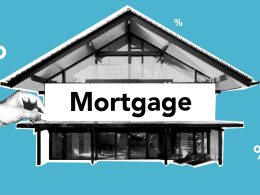South Africa is one of the continent’s most economically developed regions, but despite the progressively large number of financial products available to its citizens the level of financial literacy is dangerously far behind in some areas.
Despite this sophisticated financial sector, many South Africans are drowning in debt, particularly unsecured debt, which has climbed 20% since 2016. This isn’t just a number – it’s a red flag pointing to a deeper issue: a core lack of financial literacy at different stages of education.
Financial literacy goes beyond knowing how to open a bank account or apply for a loan. It’s about grasping (and putting into action), the fundamentals of budgeting, saving, investing, and handling debt. It’s about making informed choices that can alter your financial future. Yet for many South Africans, these concepts remain out of reach.
This knowledge gap has serious consequences. Without proper money management skills, consumers often fall into harmful patterns – missed payments, defaults, and mounting debt. Even worse, many South Africans, especially in low-income areas, turn to unregulated lenders known as “mashonisas,” who charge sky-high interest rates, trapping borrowers in debt cycles.
James Williams, head of marketing at Wonga, one of South Africa’s leading online quick loan providers, believes responsible lenders should play an active role in addressing this crisis.
“Financial literacy isn’t just a social issue – it directly impacts our industry,” Williams said. “When borrowers don’t understand the risks of financial products, it leads to more defaults, more debt, and ultimately, a less stable economy.”
At Wonga, educating borrowers about their products and associated risks has become a priority. “It’s not just about compliance,” Williams explained. “It’s about fostering informed decision-making and helping customers make choices that improve their financial well-being.”
Efforts to boost financial literacy in South Africa are underway, but they lack coordination. Many programs are fragmented, run by different organizations with little alignment. What’s needed is a unified, industry-wide approach to financial education. This is where lenders like Wonga see an opportunity to lead.
“We’re committed to incorporating financial literacy into every aspect of our services,” Williams said. “Whether it’s providing clear information on our website or directly engaging with borrowers through educational programs, we believe that knowledge is power.”
Through education, lenders aim to empower customers to make sound financial decisions – whether that’s managing a budget, setting up a savings plan, or understanding the true cost of borrowing. It’s about giving people the tools to take control of their financial futures.
One of the biggest challenges is the large disconnect between formal and informal lending markets. Many South Africans in impoverished townships are excluded from formal financial systems. As a result, they turn to mashonisas, who charge far more than regulated institutions.
The problem with these informal lenders isn’t just the high interest rates; it’s also the lack of education. Borrowers aren’t being informed about the consequences of taking on such costly debt, which only deepens their financial troubles. Formal lenders like Wonga see an opportunity – and a responsibility – to reach these communities, educate them, and provide safer, more affordable lending options.
“Financial literacy is more than just a buzzword,” Williams said. “It’s the key to building a healthier, more financially inclusive society.” By providing education, formal lenders can position themselves as responsible institutions that care about their customers’ financial health, not just their bottom line.
Wonga has taken this responsibility seriously, conducting extensive research into South Africa’s informal lending markets and developing initiatives aimed at helping vulnerable customers. By collaborating with other financial institutions, they hope to create a more financially literate, empowered society – one where consumers have the knowledge they need to thrive.
There’s an urgent need for a cohesive, coordinated effort to boost financial literacy in South Africa. This isn’t just the job of the government or non-profits – it’s something that lenders must actively champion. Educating borrowers on available financial products and associated risks is crucial to fostering long term, responsible financial behaviour.
“It’s time for us to stop seeing financial literacy as an afterthought,” Williams said. “Instead, it must be embedded into every aspect of our business model. By doing so, we’ll not only help our customers manage their finances better, but we’ll also create a more stable, robust economy.”
The message to other lenders is clear: take the lead in financial education. Your customers – and the country – will benefit from it.









